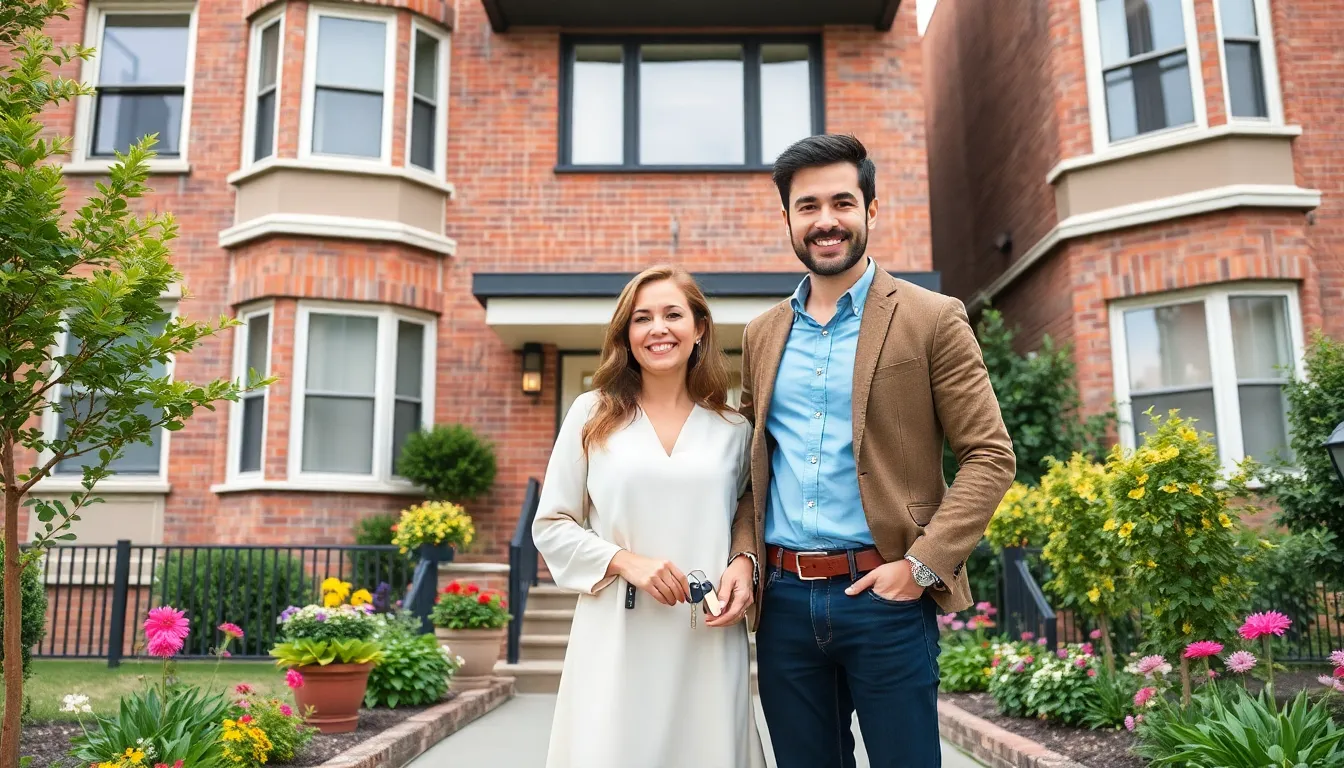Table of Contents
ToggleWhen it comes to finding a place to call home, the age-old debate of buying versus renting an apartment can feel like a game of chess—strategic, sometimes confusing, and definitely full of unexpected twists. Should one dive into the deep end of homeownership or dip their toes in the rental pool? Each option has its perks and pitfalls, making the decision as tricky as deciding between pizza or tacos for dinner.
Buying an apartment can be like adopting a pet—exciting but also a long-term commitment that requires maintenance and care. On the flip side, renting offers flexibility and freedom, like being a carefree nomad who can pack up and move at a moment’s notice. Whether you’re a first-time buyer or a seasoned renter, understanding the pros and cons of each can help you make the best choice for your lifestyle and budget.
Overview of Buying vs Renting an Apartment
Buying an apartment involves a significant financial investment and long-term commitment. Homeowners gain equity with each mortgage payment, which builds wealth over time. Monthly mortgage payments typically include property taxes and insurance, unlike renting, which generally covers only the rent itself.
Renting an apartment offers flexibility, allowing tenants to relocate easily based on job changes or lifestyle preferences. Renters usually enjoy lower upfront costs, avoiding large down payments and closing fees. Monthly rent payments don’t contribute to ownership, creating a perpetual cost.
Homeownership provides stability and the freedom to customize living spaces. Mortgages can offer tax deductions, which benefit some buyers financially. Owning an apartment also protects against rising rental prices, locking in housing costs for the mortgage term.
Conversely, renting often means no responsibility for maintenance or repairs, as landlords typically handle these issues. This arrangement relieves renters of unexpected costs associated with home ownership, such as redesigning a space or fixing appliances.
Understanding both options aids in effective decision-making. Factors such as lifestyle, financial stability, and market conditions influence whether to buy or rent. Evaluating personal priorities can lead to a more satisfying living situation.
Advantages of Buying an Apartment

Buying an apartment carries several advantages that often outweigh the long-term costs.
Long-Term Financial Investment
Ownership builds equity over time. Homeowners can increase their wealth as property values rise. Monthly mortgage payments contribute to equity rather than just covering rent. Additionally, financing options, such as fixed-rate mortgages, provide predictable monthly costs. Tax deductions for mortgage interest can also enhance financial benefits. Appreciation potential varies by location, but many markets show increased value over the years. Homeownership encourages a disciplined approach to saving, as each payment increases long-term financial assets.
Stability and Control
Owning an apartment guarantees stability for homeowners. Stability comes from having a permanent residence without the threat of rent hikes or eviction. Control over personal space allows for customization, from renovations to design choices, meeting individual preferences. A sense of community often develops as homeowners invest time and resources into their neighborhoods. Security strengthens, as owning means protection from the uncertainties of rental agreements. Furthermore, no landlord restrictions mean greater freedom in utilizing the property.
Advantages of Renting an Apartment
Renting an apartment offers multiple benefits for individuals seeking flexibility and lower financial commitments. This arrangement caters to those who prioritize mobility and reduced start-up costs.
Flexibility and Mobility
Renting provides significant flexibility for tenants. Lease agreements often range from six months to a year, enabling quick relocation when necessary. Individuals can adapt to life changes like job transfers or family expansions without the constraints of selling property. Renters also enjoy the option to explore various neighborhoods without long-term commitments. Adapting to new environments becomes seamless and less stressful, as it’s easier to switch locations based on personal or professional preferences. The ability to lease different properties allows tenants to experience diverse living arrangements before considering homeownership.
Lower Upfront Costs
Lower upfront costs constitute another major advantage of renting. Prospective tenants face minimal initial expenses, typically limited to the first month’s rent and a security deposit. This contrasts sharply with the hefty down payment often required for purchasing a property, which can reach 20% of the home’s value. Additionally, renters often avoid costs associated with closing fees, property taxes, and maintenance expenses. Financial flexibility increases since tenants can allocate their savings for other investments or experiences rather than tying them down with home equity. Overall, this affordability supports a broader range of lifestyles and financial goals for individuals and families alike.
Considerations When Choosing
Deciding between buying and renting an apartment encompasses various factors. Financial circumstances and lifestyle needs significantly impact this choice.
Financial Situation
Assessing one’s financial situation is crucial when choosing between options. Many consider their credit score, as it influences mortgage approval and interest rates. Upfront costs differ; buying an apartment typically entails a down payment ranging from 3% to 20% of the purchase price, while renting usually requires only the first month’s rent and a security deposit. Additionally, evaluate ongoing expenses. Homeowners face property taxes, insurance, and maintenance costs, whereas renters typically have lower maintenance responsibilities. Financing options also matter. Fixed-rate mortgages offer stability in monthly payments, making it easier to budget over the long term. Assessing personal financial health, including savings and debts, helps individuals make informed decisions regarding their housing situation.
Lifestyle Needs
Lifestyle requirements shape the decision to buy or rent. Many people value flexibility in their living arrangements, particularly those in transitional phases of life or pursuing career advancements. Short lease terms appeal to renters, allowing quicker relocation when necessary. Homeowners, on the other hand, typically seek stability and long-term investment. Consider community engagement as well. Owning an apartment fosters deeper connections with neighbors and investment in the property’s upkeep. Customization options further appeal to individuals wanting to personalize their living space. Ultimately, aligning lifestyle expectations with financial realities is essential for making the best choice.
Choosing between buying and renting an apartment is a significant decision that hinges on individual circumstances and priorities. Homeownership offers the allure of stability and long-term financial benefits while allowing for personal customization. On the other hand, renting provides unmatched flexibility and lower initial financial commitments, making it an appealing choice for those who value mobility.
Ultimately, understanding one’s financial situation and lifestyle needs is essential in making this choice. Whether one opts for the investment potential of buying or the adaptability of renting, it’s crucial to weigh the pros and cons carefully. Each path can lead to a fulfilling living experience when aligned with personal goals and market conditions.







